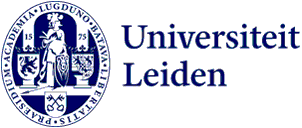Lecture | Faculty Lecture
Modes of Human Becoming: Towards a Process Archaeology of Mind
- Date
- Thursday 28 September 2023
- Time
- Address
-
Van Steenis
Einsteinweg 2
2333 CC Leiden - Room
- Reuvens Hall (Main Hall Van Steenis)

Abstract
How do humans become? My basic thesis is simple: Humans become through their creative engagement with the material world. We are plastic creatures inextricably intertwined with the plasticity of forms that we make. Humans construct signs, draw lines and leave memory traces. Importantly, they maintain a transactional relationship with other beings (human and non-human) that surrounds them. This applies to the modern forager of digital information as it applies to the Palaeolithic hunter-gatherer and tool-maker. There is nothing in our genes, as there is nothing in our cultures that can explain that. Instead, we need to look at the lived space ‘in-between’, that is, where brain, body and culture conflate.
In my talk I will try to explore the major implications of this entanglement of mind and matter, for the traditional ways we understand the process of creativity and the role that it plays in human becoming.
About the speaker
Professor Malafouris' primary interest lies in the study of the interaction between cognition and material culture. He is studying the effects of materiality in human cognitive life (past and present). A major aspect of his work has been the development of Material Engagement Theory (MET) which forms the basis of his first authored book, How Things Shape the Mind (MIT Press). Malafouris has been addressing empirical and theoretical questions on topics extending from early stone tools and personal decoration, to the emergence of symbolic technologies of more recent periods, to the latest innovations in digital techniques and media.
His approach to research has been intra- and cross-disciplinary, using the insights that we gain from the archaeological and anthropological study of material culture to establish a critical dialogue with the broader field of cognitive sciences about the boundaries, the ontology, and the uniqueness of human intelligence and its evolution. Malafouris has been trying to understand and to articulate the basic principles of the creative entanglement between the plasticity of the human mind and the plasticity of the material forms and techniques that we make (metaplasticity).
He is currently Principal Investigator of HANDMADE: Understanding Creative Gesture in Pottery Making funded through a European Research Council (ERC) Consolidator Grant. The HANDMADE project is focusing on the cognitive ecology and poetics of clay. HANDMADE attempts a comparative anthropological exploration of the creative dialogue between hands and clay through multi-sited participant observation in several traditional ceramic workshops spread around mainland Greece and the Islands.
